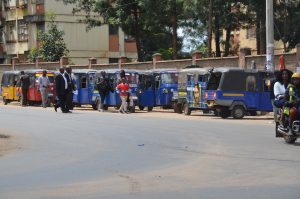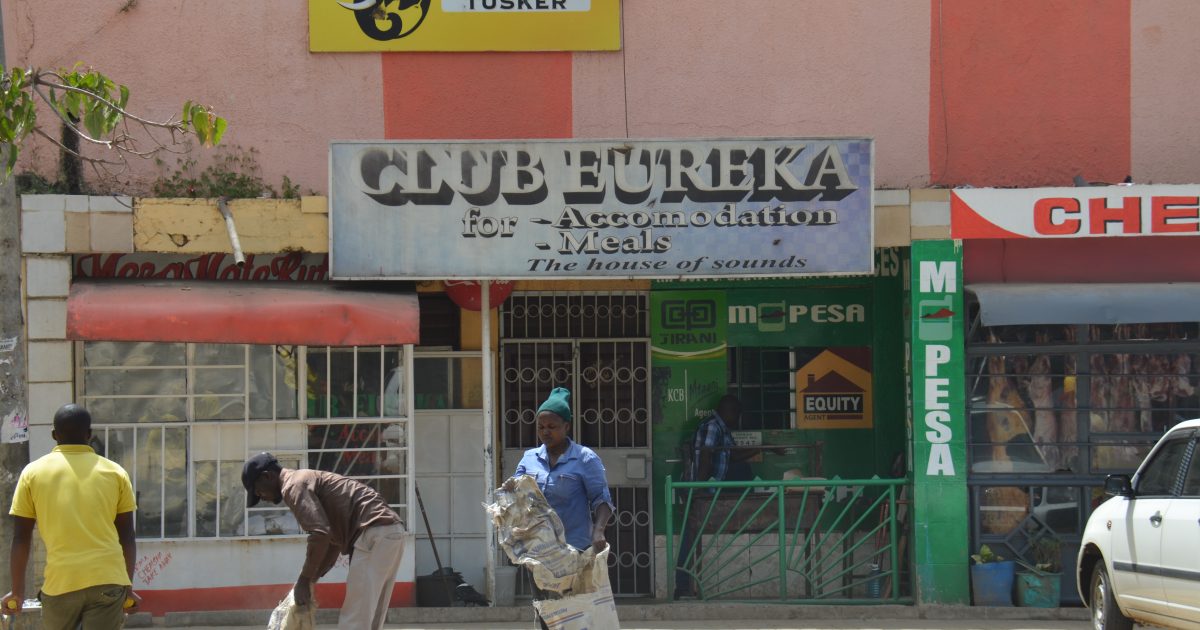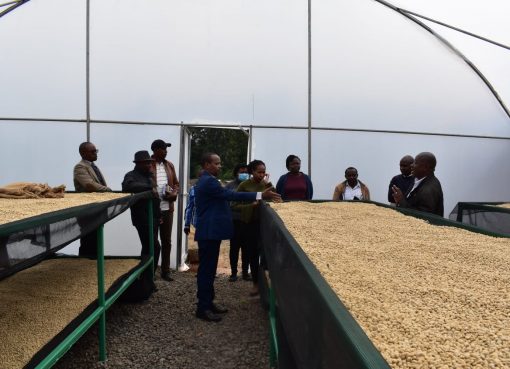
The Machakos Chamber of Commerce and Industry (KNCCI) Chairman, Mutavi Kithu has backed a move by the county government to zero in on businesses and Bodaboda operators as a precautionary measure on the war against the spread of coronavirus.
Speaking to KNA on Tuesday, Kithu said the current measures being taken by both the county and national government are the best options available to stop further spread of the disease and stem a possible national disaster similar to what is being witnessed in developed countries like Italy and Spain.
The official, while acknowledging that the decision to suspend business operations has grave economic ramifications, was however quick to add that this is the best safeguard against a possible explosion of the disease.
“I fully support both the national and county government in their move to suspend the operations of key businesses such as bars and restaurants in an effort curb the spread of this deadly disease. While the move may appear punitive at the moment, it is the small price we have to pay to stay alive as a people,” he said.
Yesterday, the Machakos Governor, Dr Alfred Mutua ordered the suspension of bodaboda, tuk tuk and maruti operations within the county for the next two weeks beginning from tomorrow (Wednesday 25, 2020).
He also ordered the closure of all miraa shops, pool tables and banned market days to help reduce the movement of people from one area of the county to another.
“Social distancing is critical if we are to avoid Wananchi getting infected .There is no way a bodaboda rider is safe from being infected by a sick passenger and thereafter infecting hundreds. Hence from Wednesday, March 25, 2020, at 5am, no boda bodas, maruti or Tuk Tuks will be allowed to operate for the next two weeks. We cannot pretend we are keeping the social distance and still riding on boda bodas where the separation between the rider and passenger is zero,” he said while addressing the press.
However, the county government said it will henceforth waive all taxes levied on boda boda and maruti operators for the rest of the year to cushion the owners from the expected loss of income.
On his part, Kithu called upon the government to come out and rescue small traders by engaging microfinance institutions to come up with a mechanism to restructure loan repayment at a friendly arrangement.
On Sunday, the government ordered the immediate closure of all bars, entertainment joints, and worship centers besides suspending all international flights beginning tomorrow in a bid to scale down the number of people being infected by the virus.
The Ministry of Health has also ordered funerals to be strictly attended by close family members and not exceed 15 people.
Members of the public have also been advised on the need to observe social distance and avoid moving out of their houses unless when extremely necessary.
The official argues the government can employ the same approach it did with big banks on loan repayments and have the same cascaded to small lenders as the country braces for tough economic times occasioned by the ongoing spread of coronavirus across the globe.
The disease has so far infected 358,852 people and killed close to 16,000 others globally plunging the world economy into uncharted waters since the Second World War.
Sixteen cases of coronavirus have already been confirmed in Kenyans to date.
China, which was the epicenter of the epidemic, had recorded the highest number of infections and deaths in a span of less than two months but the situation is shifting to Europe where countries like Italy, France and Spain are reeling under the impact of new infections and deaths and in turn stretching their health systems to the limit.
According to WHO official site Corona viruses (CoV) is a large family of viruses that cause illness ranging from the common cold to more severe diseases such as Middle East Respiratory Syndrome (MERS-CoV) and Severe Acute Respiratory Syndrome (SARS-CoV).
The current scourge COVID-19 is a new strain that was discovered in 2019 and has not been previously identified in humans.
Common signs of infection include respiratory symptoms, fever, and cough, shortness of breath and breathing difficulties. In more severe cases, infection can cause pneumonia, severe acute respiratory syndrome, kidney failure and even death.
Standard recommendations to prevent infection spread include regular hand washing, covering mouth and nose when coughing and sneezing, thoroughly cooking meat and eggs.
Other measures, include avoiding close contact with anyone showing symptoms of respiratory illness such as coughing and sneezing.
Elsewhere, the Employees at Mwatate Sisal Estate in Taita-Taveta County are staring at mass job layoffs after the National Environment Management Authority (NEMA) shut down the sisal factory over improper effluence discharge.
The fate of workers at the sisal farm hangs in balance as union officials and the farm management scramble to find a formula to mitigate the plight of employees against the adverse effect of the closure.
Richard Juma, the county chair of Kenya Plantation Workers’ Union, said that the direct casualties of the closer were 1,200 casual workers who had to be laid off as soon as NEMA orders were received on Friday last week.
Speaking to KNA today, Juma said the closing has had a ripple effect because it affected the section at the heart of sisal processing plant.
He stated that the effluence was produced by the decorticator machine which had to be shut down. Decorticating machine is responsible for cutting and processing of sisal leaves to produce fibres that are used for manufacturing of materials, ropes and clothes.
“When the machine is closed, it affects all other departments. Cutters in the field cannot bring in any sisal for processing and workers in the drying section also have nothing to dry,” he said.
The ripple effect of the closure will affect over 5,000 workers in various departments in the expansive farm.
Juma said his office and the sisal farm management was working on a formula which would ensure workers’ rights were not violated. He stated that the NEMA orders were to the management and workers should be shielded from suffering occasioned by management’s non-compliance to safety standards of the sisal factory.
The union official however, disclosed that a section of workers had started resuming work this week as the management frantically works to adhere to prescribed environmental standards.
On the table for discussion is the possibility of allowing the employees on permanent terms to take paid leave until the firm resumes normal operations. The union leaders also intend to negotiate a package for workers on casual and temporary basis.
“We are having a meeting on Thursday and hopefully, we will find a common ground for our challenges,” he said.
The NEMA County Director, Edith Kalo confirmed that the factory was closed on Friday last week following flagrant disregard of safe disposal of effluence from the processing plant. She added that her office has issued several warnings to the company to comply but nothing had been done.
“We have sent warning letters and notices to the company for over five years. They did not comply leaving us with no choice but to close it down,” she said.
She stated that the untreated effluence from the plant was hazardous and posed a threat to people, animals and environment.
She however said the firm had started working on complying with the directives. One of the steps was hiring an environmental expert who was advising the management on the procedures of management of effluence.
Ms. Kalo said her office was working closely with the firm to ensure they fulfilled the safety standards regulations.
“We are pleased at the pace with which the firm is complying with NEMA requirements,” she added.
Days after NEMA closed the plant, there was panic among workers after reports said government agency had shut down sisal decorticator machine, locally known by workers as the corona.
Juma said a section of workers associated the closure of corona machine with the spread of corona virus.
“All workers call the machine Corona. Workers started panicking thinking the closure had something to do with coronavirus. It took a lot of convincing that it was a compliance issue,” said the union official.
He expressed optimism that the issues would be resolved soon to allow workers to resume work and avoid crowding in their centralized settlements. He said almost all workers lived in the same place which posed a risk to all.
“With Covid-19, so many people living in one place with their children is a health risk. It’s better if they are working in their various departments where they don’t interact,” he said.
By Samuel Maina/Wagema Mwangi





